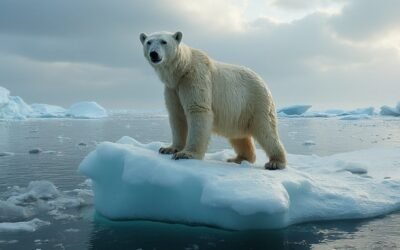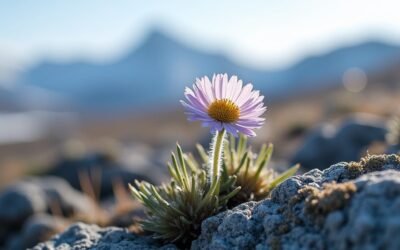The best season for observing beluga whales in the wild is from June to August. During these summer months, belugas migrate to warmer waters, making locations like Churchill River in Manitoba perfect for sightings. The longer daylight hours enhance whale watching experiences, providing ample time for observation. Favorable weather conditions, characterized by clear skies and calm seas, contribute greatly to the viewing conditions in regions such as Northern Canada, Greenland, and the Svalbard archipelago. Popular activities include guided boat tours and Arctic wildlife cruises, offering close encounters with these fascinating creatures. To explore more details, continue on.
Main Points
- June to August is the best period for beluga whale sightings.
- Belugas migrate to warmer waters in summer, enhancing visibility.
- Churchill River in Manitoba is a prime location for summer sightings.
- Northern Canada, Greenland, and Svalbard offer excellent summer viewing conditions.
- Longer daylight hours in summer allow for extended whale watching experiences.
Best Months for Sightings
The best period for observing beluga whales in their natural habitat spans from June to August. During these summer months, beluga whales migrate to warmer waters, making locations such as the Churchill River in Manitoba prime spots for whale watching. The influx of belugas into these regions is driven by the favorable conditions that the warmer waters provide, both for the whales and for those wishing to observe them.
From June to August, the Churchill River becomes a bustling hub of beluga activity. This time frame offers prime conditions for clear viewing and interaction with the whales, thanks to longer daylight hours and generally calm water conditions. These extended daylight hours allow for prolonged whale watching experiences, giving enthusiasts ample time to observe the belugas' behavior and enjoy their natural surroundings.
Many tour operators in Churchill, Manitoba, capitalize on this peak season by scheduling tours specifically during these months. This guarantees that visitors have the best chance of encountering the whales in their natural habitat. The combination of abundant whale activity and favorable viewing conditions makes the summer months the ideal time for observing belugas in the wild.
Churchill River Highlights
Among the best locations for observing beluga whales during the summer months is the Churchill River in Manitoba, which offers unparalleled opportunities for close encounters with these fascinating marine mammals. Known as the 'Canaries of the Sea' due to their vocal nature, beluga whales migrate to the warmer, coastal waters of the Churchill River from the Arctic and sub-Arctic regions. This migration occurs during the summer months, creating an ideal season for whale watching enthusiasts to witness their remarkable behavior and interactions up close.
The Churchill River is a prime location because it provides a unique and accessible environment for observing these cetaceans. The beluga whales are often seen in large groups, making it easier for visitors to observe their social dynamics and hear their distinctive calls. Additionally, the clear waters of the river enhance visibility, allowing for an immersive experience.
Here is a table that highlights some key features of the Churchill River:
| Feature | Description | Season |
|---|---|---|
| Water Temperature | Warmer coastal waters | Summer months |
| Whale Population | High concentration of beluga whales | Summer months |
| Visibility | Clear waters for optimal viewing | Summer months |
Ideal Weather Conditions
Clear skies and calm seas are essential for the best visibility when observing beluga whales in their natural habitat. Ideal weather conditions greatly enhance wildlife viewing experiences, especially in the Arctic. During the summer season, from June to August, regions like Northern Canada and Greenland offer excellent weather conditions for beluga whale sightings. The mild temperatures during these months make outdoor excursions more comfortable, allowing enthusiasts to enjoy extended wildlife viewing sessions.
Calm seas are particularly important in the Arctic, as they create a peaceful environment for beluga whales. This tranquility not only facilitates harmonious interactions but also makes it easier for observers to spot these magnificent creatures. The longer daylight hours of the summer season further contribute to increased chances of witnessing beluga whales in their natural surroundings, providing ample time for leisurely observations.
Popular Viewing Spots
Several prime locations around the Arctic offer unparalleled opportunities for observing beluga whales in their natural habitat. These sites are renowned for their accessibility and the unique experiences they provide, particularly during the summer months when beluga whales migrate to sub-Arctic regions.
One of the most popular spots is Baffin Island, located in the Arctic regions of Northern Canada. This area is well-known for its guided boat tours, which allow visitors to see beluga whales up close and personal. Additionally, Arctic wildlife cruises, such as those exploring the Northwest Passage, offer unique vantage points for observing these majestic creatures in their natural habitat.
Here are some key locations and activities for beluga whale watching:
- Baffin Island: Known for its guided boat tours and close encounters with beluga whales.
- Northwest Passage: Offers Arctic wildlife cruises that provide excellent opportunities for whale sightings.
- Northern Canada: Coastal waters here are frequented by beluga whales during the summer.
- Greenland: Another prime location within the Arctic regions for observing belugas.
- Svalbard: This archipelago offers spectacular views of beluga whales in their natural environment.
These locations not only provide a chance to see beluga whales but also highlight the rich biodiversity of the Arctic ecosystem.
Whale Watching Activities
Whale watching activities offer an immersive experience that allows enthusiasts to observe beluga whales engaging in natural behaviors such as feeding, playing, and socializing in their Arctic habitats. During the best summer season, these whales migrate towards sub-Arctic regions, making it an ideal time for whale watching.
Expeditions like the Northwest Passage and Arctic wildlife cruises provide unique opportunities to see beluga whales up close. Guided boat tours around Baffin Island are particularly renowned for their ability to bring observers into close proximity with these majestic creatures in their natural settings. These tours often include knowledgeable guides who offer insights into the behaviors and migratory patterns of beluga whales.
Regions such as Northern Canada, Greenland, and Svalbard are prime locations for witnessing beluga whale migrations. In these areas, boat tours are meticulously planned to coincide with the whales' arrival, ensuring enhanced viewing experiences. As the belugas migrate through these sub-Arctic waters, watchers can witness a range of activities, from feeding frenzies to playful interactions and social bonding within pods.
Is the Beluga Whale Migration Path Linked to Optimal Seasons for Observing Them in the Wild?
Beluga whales are known for their seasonal migrations, often moving to warmer or ice-free waters during summer months. The beluga whale migration is closely tied to changes in sea ice and food availability, providing prime opportunities for wildlife enthusiasts to observe them in their natural habitats during the summer season.
Conclusion
Observing beluga whales in the wild is best during specific months when environmental conditions are favorable. Key viewing locations, such as the Churchill River, offer excellent opportunities, especially when ideal weather conditions prevail. Popular spots and whale-watching activities enhance the experience, providing ample opportunities for sightings. By aligning visits with these ideal factors, enthusiasts can maximize their chances of witnessing these majestic creatures in their natural habitat, thereby ensuring a rewarding and memorable observation experience.


